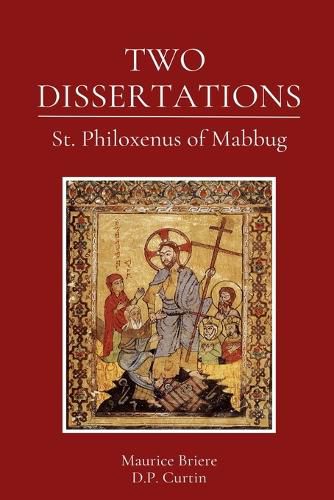Readings Newsletter
Become a Readings Member to make your shopping experience even easier.
Sign in or sign up for free!
You’re not far away from qualifying for FREE standard shipping within Australia
You’ve qualified for FREE standard shipping within Australia
The cart is loading…






This title is printed to order. This book may have been self-published. If so, we cannot guarantee the quality of the content. In the main most books will have gone through the editing process however some may not. We therefore suggest that you be aware of this before ordering this book. If in doubt check either the author or publisher’s details as we are unable to accept any returns unless they are faulty. Please contact us if you have any questions.
In "Two Dissertations," Saint Philoxenus addresses a critic who, while entangled in heretical beliefs, attempts to refute Philoxenus's writings. The bishop articulates the nature of true faith, emphasizing that it is not based on human works but on divine grace. He critiques the critic's lack of understanding of Christian doctrine and highlights the significance of humility, repentance, and the mysteries of faith. Philoxenus argues that genuine faith transcends intellectual comprehension and is rooted in a relationship with Christ, which should inspire compassion rather than condemnation.
$9.00 standard shipping within Australia
FREE standard shipping within Australia for orders over $100.00
Express & International shipping calculated at checkout
This title is printed to order. This book may have been self-published. If so, we cannot guarantee the quality of the content. In the main most books will have gone through the editing process however some may not. We therefore suggest that you be aware of this before ordering this book. If in doubt check either the author or publisher’s details as we are unable to accept any returns unless they are faulty. Please contact us if you have any questions.
In "Two Dissertations," Saint Philoxenus addresses a critic who, while entangled in heretical beliefs, attempts to refute Philoxenus's writings. The bishop articulates the nature of true faith, emphasizing that it is not based on human works but on divine grace. He critiques the critic's lack of understanding of Christian doctrine and highlights the significance of humility, repentance, and the mysteries of faith. Philoxenus argues that genuine faith transcends intellectual comprehension and is rooted in a relationship with Christ, which should inspire compassion rather than condemnation.